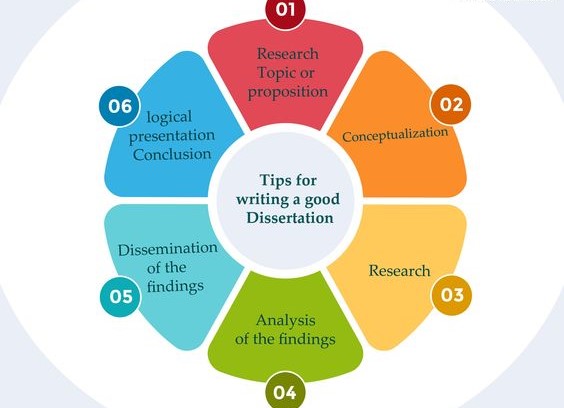
Table of Contents
Embarking on a nursing dissertation is a monumental undertaking, demanding extensive research, rigorous analysis, and a profound understanding of the chosen subject. At the heart of this endeavor lies the crucial choice of a dissertation topic – one that is not only relevant and impactful but also unique and original.
Finding a suitable nursing dissertation topic can feel like navigating a labyrinth, filled with countless paths and potential dead ends. Fear not, for this guide offers a roadmap to help you navigate this intricate journey and emerge with a topic that truly resonates with your interests and expertise.
The Importance of a Unique Nursing Dissertation Topic
A unique nursing dissertation topic is crucial for several reasons: Here are the key reasons why you should strive for a unique topic when planning your dissertation.
For the Researcher:
- Intellectual Stimulation: A unique topic allows you to delve into uncharted territory, fostering intellectual curiosity and pushing your own boundaries.
- Personal Growth: Choosing a topic that genuinely interests you will make the dissertation process more engaging and enjoyable, leading to greater personal and academic satisfaction.
- Novelty and Contribution: A unique dissertation can make a novel contribution to the field, advancing knowledge and generating new research questions.
- Enhanced Credibility: A unique and insightful dissertation can establish your credibility as a researcher and expert in your chosen field.
For the Academic Community:
- New Knowledge and Perspectives: A unique topic can offer fresh perspectives and insights, expanding the understanding of a subject area.
- Stimulating Debate and Research: A well-executed unique dissertation can generate further research and discussion, stimulating progress within the field.
- Increased Relevance: By tackling a novel topic, you can contribute to the current academic discourse and address contemporary issues.
For Career Advancement:
- Career Differentiation: A unique dissertation can set you apart from other graduates and make you a more attractive candidate for academic or research positions.
- Publishing Opportunities: A well-written unique dissertation has a greater chance of being published, enhancing your academic profile and visibility.
- Professional Recognition: A dissertation exploring a unique topic can lead to recognition from your peers and experts in your field.
However, keep in mind:
- Uniqueness doesn’t mean impractical: Your topic should still be relevant and feasible within your field, with available resources and research opportunities.
- Novelty can be incremental: Even if you’re not pioneering a completely new field, your research can offer a new angle or contribute to a specific area of existing research.
Ultimately, a unique dissertation topic is important for its ability to push boundaries, contribute to knowledge, and help you stand out as a researcher. It’s not just about the topic itself, but also about your approach, analysis, and the contribution you make through your research.
How to Choose a Compelling Nursing Dissertation Topic
1. The Seed of Inspiration: Embracing Your Passion
The most successful nursing dissertation topics often stem from a genuine passion. Reflect on your experiences in the nursing field – what aspects intrigue you the most? What clinical encounters sparked curiosity and a desire for deeper understanding? Perhaps you’ve witnessed the impact of a particular nursing intervention, or felt a strong connection to a specific patient population. These personal experiences can be invaluable starting points for your dissertation journey.

2. Unveiling the Gaps: Identifying Research Needs
A compelling nursing dissertation topic should address a significant knowledge gap in the field. Begin by exploring the latest nursing research and identifying areas where more information is needed. Consider:
- Unmet patient needs: Are there specific patient groups facing unique challenges or disparities in care?
- Emerging healthcare trends: How can nursing practice adapt to evolving healthcare technologies, shifting demographics, or new disease patterns?
- Policy gaps: Are there areas where policy changes could improve patient outcomes or support nursing practice?
3. The Power of Collaboration: Seeking Guidance from Mentors
Your dissertation advisor is a valuable ally in this process. Don’t hesitate to discuss your interests and potential nursing dissertation topics with them. Their experience and expertise can help you refine your ideas, suggest relevant research avenues, and steer you towards areas of active research.
4. The Art of Focus: Narrowing Your Scope
It’s tempting to tackle a broad topic, but narrowing your focus is crucial for a successful dissertation. Avoid sprawling topics that are impossible to cover in a single dissertation. Instead, choose a specific area of interest and frame your nursing dissertation topic as a focused question or hypothesis.
5. Literature Review: Unveiling the Existing Landscape
A comprehensive literature review is essential for understanding the existing research on your chosen topic. This will help you:
- Identify gaps in knowledge: What unanswered questions remain?
- Refine your topic: Is there a more specific area within your broader interest that needs further exploration?
- Develop your research question: What specific question or hypothesis can your research address?
6. The Feasibility Factor: Assessing Your Resources

Consider the practical aspects of your nursing dissertation topic. Do you have access to the necessary resources, including:
- Data sources: Will you need to collect primary data or rely on existing secondary data?
- Time commitment: Is the scope of your research manageable within the timeframe of your program?
- Financial resources: Are there any costs associated with data collection or analysis?
7. The Ethical Lens: Addressing Ethical Considerations
Ethical considerations are paramount in nursing research. Before pursuing a nursing dissertation topic, assess any potential ethical implications.
- Informed consent: Will you need to obtain informed consent from participants?
- Confidentiality: How will you protect the privacy and confidentiality of participants?
- Potential harm: Are there any risks associated with your research, and how will you mitigate them?
8. The Innovation Imperative: Exploring New Perspectives
Uniqueness is key to a compelling nursing dissertation topic. Look for opportunities to bring fresh perspectives to existing research, potentially by:
- Combining different perspectives: Can you integrate insights from different disciplines, such as psychology, sociology, or technology?
- Applying innovative methods: Could you utilize a novel research methodology or data analysis technique?
- Addressing a new context: Can you apply your research to a specific population or healthcare setting that hasn’t been explored before?
9. The Impact Factor: Considering Real-World Applications
A truly impactful nursing dissertation topic has the potential to improve nursing practice or patient outcomes. Consider:
- Clinical implications: How can your research inform best practices in clinical settings?
- Policy recommendations: Can your findings influence policy decisions related to patient care or nursing education?
- Dissemination plans: How will you share your findings with the nursing community and broader healthcare system?
10. The Brainstorming Blitz: Spark Your Creativity

Don’t be afraid to experiment with different approaches to generate nursing dissertation topics. Try these brainstorming techniques:
- Mind mapping: Start with your core interests and branch out into related concepts and ideas.
- Keyword brainstorming: List key terms related to your chosen area of focus and explore their connections.
- Freewriting: Write freely about your topic without self-censorship, allowing ideas to flow spontaneously.
Examples of Unique Nursing Dissertation Topics
To illustrate the possibilities, here are some examples of potential nursing dissertation topics that incorporate the elements discussed above:
1. Addressing Health Disparities:
- “The Impact of Social Determinants of Health on Access to Palliative Care Among Underserved Populations”
- “Exploring the Lived Experiences of LGBTQ+ Individuals with Chronic Pain and Their Access to Healthcare”
2. Improving Patient Outcomes:
- “The Effectiveness of Mindfulness-Based Interventions in Reducing Anxiety in Patients with Heart Failure”
- “Developing a Culturally Tailored Educational Program to Improve Adherence to Antihypertensive Medication Among African American Adults”
3. Enhancing Nursing Practice:
- “Evaluating the Impact of Simulation-Based Training on Nursing Students’ Confidence in Managing Acute Respiratory Distress Syndrome”
- “Developing a Patient-Centered Approach to Discharge Planning for Older Adults with Complex Care Needs”
4. Utilizing Technology in Nursing:

- “The Role of Telehealth in Providing Mental Health Support to Rural Communities”
- “Assessing the Impact of Artificial Intelligence on Nursing Decision-Making in Critical Care Settings”
5. Exploring Emerging Trends:
- “The Ethical Considerations of Using Artificial Intelligence in Personalized Cancer Treatment”
- “Evaluating the Impact of Climate Change on Nursing Practice and Patient Health”
The Common Pitfalls to Avoid in Choosing a Nursing Dissertation Topic
Choosing a dissertation topic for nursing can be a daunting task, but with careful consideration, you can avoid common pitfalls and select a topic that is both interesting and manageable. Here are some key pitfalls to avoid:
1. Too Broad or Too Narrow:
- Too Broad: Topics that are too broad can be overwhelming and difficult to research thoroughly. For example, “The impact of stress on nurses” is too broad.
- Too Narrow: Conversely, a topic that is too narrow may lack sufficient research or be too specific for a dissertation. For instance, “The effect of aromatherapy on anxiety levels in post-operative patients at XYZ hospital” might be too specific.
2. Lack of Relevance or Interest:
- Lack of Relevance: Choosing a topic that is not relevant to your field of nursing or your career goals can lead to a less rewarding experience. Ensure the topic resonates with your professional interests and contributes to nursing knowledge.
- Lack of Interest: If you don’t find your topic personally engaging, you’re less likely to be motivated to complete the research and writing. Choose a topic that genuinely interests you.
3. Insufficient Research Support:
- Limited Literature: Some topics may have limited research available, making it difficult to develop a strong argument or support your claims. Before committing to a topic, conduct a thorough literature review to assess the existing body of knowledge.
- Lack of Data: Some topics require specific data sources, such as patient records or clinical trials, which may be difficult or impossible to access. Make sure your chosen topic can be supported with reliable data.
4. Feasibility and Time Constraints:
- Unrealistic Scope: Be realistic about the time and resources you have available to complete your dissertation. Avoid topics that require extensive fieldwork, interviews, or data analysis if you lack the time or funding.
- Unrealistic Timeline: Allow ample time for the research, data collection, analysis, and writing process. Don’t underestimate the time commitment involved.
5. Ethical Considerations:
- Potential Harm: Ensure your research topic does not pose any ethical risks to participants or violate their privacy.
- Informed Consent: If your research involves human subjects, you must obtain informed consent from all participants and adhere to all ethical guidelines.
6. Lack of Clear Objectives:
- Unclear Research Questions: Your dissertation should address specific research questions or aims. Clearly define your objectives to provide a clear direction for your research.
- Lack of Focus: A well-defined topic helps keep your research focused and prevent you from straying from your main objectives.
Tips for Choosing a Nursing Dissertation Topic
- Review Current Literature: Identify emerging trends, research gaps, and areas where more research is needed.
- Consider Your Interests: Think about the areas of nursing that you are most passionate about and where your skills and knowledge lie.
- Brainstorm with Your Advisor: Discuss your ideas with your dissertation advisor and get their feedback on feasibility and relevance.
- Start Narrowing Down: Begin with a broad topic and gradually narrow it down to a manageable scope.
- Consider the Resources Available: Evaluate the resources you have access to, such as databases, libraries, and potential participants.
By avoiding these common pitfalls and following these tips, you can increase your chances of choosing a great nursing dissertation topic that leads to a rewarding and impactful research experience.

Finding a unique nursing dissertation topic is a challenging but rewarding process. By following these tips, you can navigate the labyrinth of possibilities and emerge with a topic that is both intellectually stimulating and impactful. Remember, the journey begins with a passion for the nursing profession and a commitment to advancing knowledge and improving patient care. Your dissertation is not just a research project; it’s a chance to make a lasting contribution to the field of nursing.
Get the Best Nursing Dissertation Writing Help
Choosing a unique nursing dissertation might seem as a simple task but, it also comes with numerous challenges. At PhD Nurse Writer, we offer the best nursing dissertation help with topic suggestion, dissertation writing, proof reading and editing, plagiarism check and removal. Besides dissertations, we also provide professional writing assistance for nursing essays, case studies and research papers.





